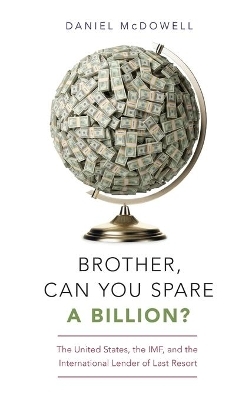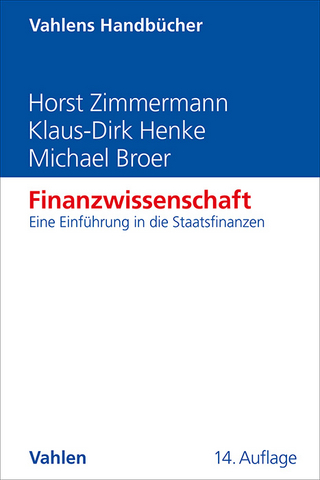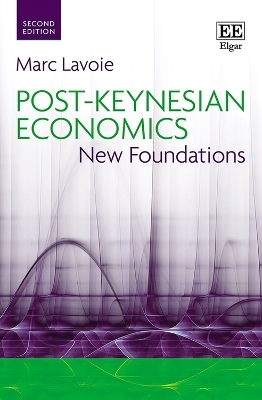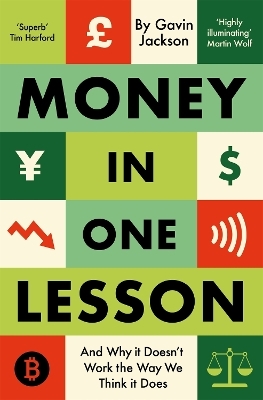
Brother, Can You Spare a Billion?
The United States, the IMF, and the International Lender of Last Resort
Seiten
2017
Oxford University Press Inc (Verlag)
978-0-19-060576-6 (ISBN)
Oxford University Press Inc (Verlag)
978-0-19-060576-6 (ISBN)
Brother, Can You Spare a Billion? explores how and why the U.S. has regularly acted, often alongside the IMF, as an international lender of last resort by selectively bailing out foreign economies in crisis. Daniel McDowell highlights the unique role that the U.S. has played in stabilizing the world economy from the 1960s through 2008.
When financial crises occur, it has long been accepted that national economies need a lender of last resort to stabilize markets. In today's global financial system, crises are rarely confined to one country. Indeed, they often go global. Yet, there is no formal international lender of last resort (ILLR) to perform this function for the world economy. Conventional wisdom says that the International Monetary Fund (IMF) has emerged as the de facto ILLR. Yet, that premise is incomplete. Brother, Can You Spare a Billion? explores how the United States has for decades regularly complemented the Fund's ILLR role by selectively providing billions of dollars in emergency loans to foreign economies in crisis. Why would U.S. policymakers ever put national financial resources at risk to "bailout" foreign governments and citizens to whom they are not beholden when the IMF was created for this purpose? Daniel McDowell argues the United States has been compelled to provide such rescues unilaterally when it believes a multilateral response via the IMF is either too slow or too small to protect vital U.S. economic and financial interests. Through a combination of historical case studies and statistical analysis, McDowell uncovers the defensive motives behind U.S. decisions to provide global liquidity beginning in the 1960s, moving through international debt crises of the 1980s and emerging market currency crises of the 1990s, and extending up to the 2008 global financial crisis. Together, these analyses paint a more complete picture of how international financial crises have been managed and highlight the unique role that the U.S. has played in stabilizing the world economy in troubled times.
When financial crises occur, it has long been accepted that national economies need a lender of last resort to stabilize markets. In today's global financial system, crises are rarely confined to one country. Indeed, they often go global. Yet, there is no formal international lender of last resort (ILLR) to perform this function for the world economy. Conventional wisdom says that the International Monetary Fund (IMF) has emerged as the de facto ILLR. Yet, that premise is incomplete. Brother, Can You Spare a Billion? explores how the United States has for decades regularly complemented the Fund's ILLR role by selectively providing billions of dollars in emergency loans to foreign economies in crisis. Why would U.S. policymakers ever put national financial resources at risk to "bailout" foreign governments and citizens to whom they are not beholden when the IMF was created for this purpose? Daniel McDowell argues the United States has been compelled to provide such rescues unilaterally when it believes a multilateral response via the IMF is either too slow or too small to protect vital U.S. economic and financial interests. Through a combination of historical case studies and statistical analysis, McDowell uncovers the defensive motives behind U.S. decisions to provide global liquidity beginning in the 1960s, moving through international debt crises of the 1980s and emerging market currency crises of the 1990s, and extending up to the 2008 global financial crisis. Together, these analyses paint a more complete picture of how international financial crises have been managed and highlight the unique role that the U.S. has played in stabilizing the world economy in troubled times.
Daniel McDowell is Assistant Professor of Political Science, Syracuse University.
Table of Figures
Table of Tables
Preface
List of Abbreviations
CHAPTER 1 - Introduction
CHAPTER 2 - The ILLR in Theory and Practice
CHAPTER 3 - The United States Invents its Own ILLR, 1961-1962
CHAPTER 4 - The Exchange Stabilization Fund and the IMF in the 1980s and 1990s
CHAPTER 5 - Who's In, Who's Out, and Why? Selecting Whom to Bailout, 1983-1999
CHAPTER 6 - U.S. International Bailouts in the 1980s and 1990s
CHAPTER 7 - The United States as ILLR during the Great Panic of 2008-2009
CHAPTER 8 - Conclusions
BIBLIOGRAPHY
APPENDIX
| Erscheinungsdatum | 04.12.2016 |
|---|---|
| Verlagsort | New York |
| Sprache | englisch |
| Maße | 236 x 160 mm |
| Gewicht | 499 g |
| Themenwelt | Wirtschaft ► Volkswirtschaftslehre ► Finanzwissenschaft |
| Wirtschaft ► Volkswirtschaftslehre ► Makroökonomie | |
| ISBN-10 | 0-19-060576-6 / 0190605766 |
| ISBN-13 | 978-0-19-060576-6 / 9780190605766 |
| Zustand | Neuware |
| Haben Sie eine Frage zum Produkt? |
Mehr entdecken
aus dem Bereich
aus dem Bereich
eine Einführung in die Staatsfinanzen
Buch | Hardcover (2024)
Vahlen (Verlag)
39,80 €
New Foundations
Buch | Softcover (2022)
Edward Elgar Publishing Ltd (Verlag)
64,75 €
and why it doesn't work the way we think it does
Buch | Softcover (2023)
Pan Books (Verlag)
13,70 €


